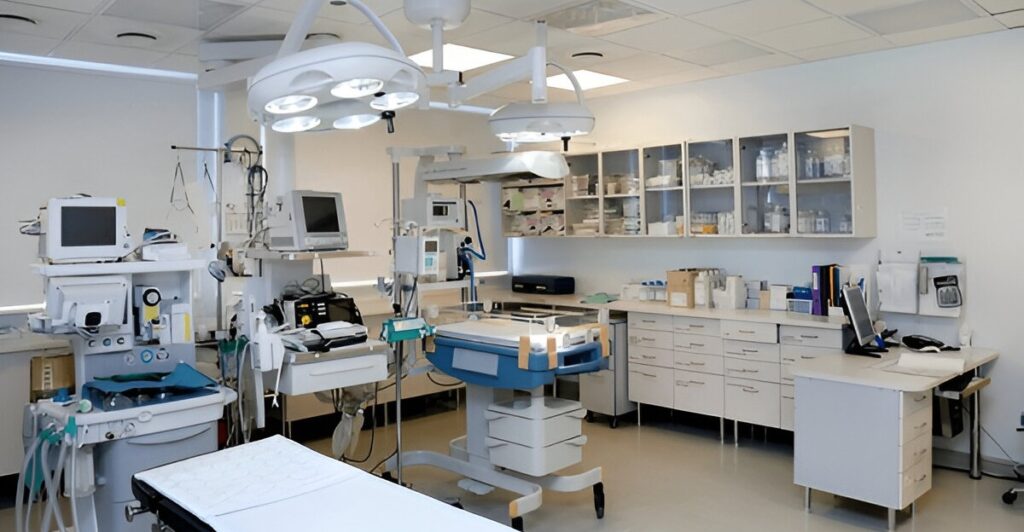When it comes to staying healthy, an ounce of prevention is worth a pound of cure. Preventive healthcare is the key to catching health issues early, maintaining wellness, and avoiding costly treatments down the road. But what exactly is preventive healthcare, and why is it so important? This complete guide explores the definition, practices, benefits, challenges, and practical steps for embracing preventive care, empowering you to take charge of your health and live a longer, healthier life.
What Is Preventive Healthcare?
Preventive healthcare involves proactive measures to maintain health and prevent diseases before they develop or worsen. Unlike reactive care, which treats illnesses after they occur, preventive care focuses on early detection, risk reduction, and healthy lifestyle choices. It includes regular check-ups, screenings, vaccinations, and health education, often delivered through primary care providers like doctors or nurses.
Think of preventive healthcare as routine maintenance for your body, similar to servicing a car to avoid breakdowns. By addressing potential health risks early, disease prevention strategies help individuals stay healthy and reduce the burden on healthcare systems. Preventive care is suitable for all ages, from childhood vaccinations to senior wellness screenings.
Why Preventive Healthcare Matters
The importance of preventive healthcare cannot be overstated. It plays a critical role in improving individual health outcomes and strengthening community well-being. Here’s why it matters:
Early Detection Saves Lives
Many serious conditions, like cancer or heart disease, show few symptoms in their early stages. Regular screenings, such as mammograms or cholesterol tests, can detect issues before they become life-threatening, allowing for earlier, more effective treatment.
Reduces Healthcare Costs
Preventing diseases is often far less expensive than treating advanced conditions. For example, managing high blood pressure through routine check-ups is cheaper than treating a heart attack or stroke.
Enhances Quality of Life
By promoting healthy habits and catching problems early, preventive care helps individuals avoid chronic pain, disability, or reduced life expectancy, leading to a better quality of life.
Protects Public Health
Preventive measures like vaccinations or public health campaigns reduce the spread of infectious diseases, protecting entire communities. For instance, widespread flu shots help prevent outbreaks.
Empowers Individuals
Health maintenance through education and screenings gives people the knowledge and tools to make informed choices, such as adopting a balanced diet or quitting smoking.
These factors highlight why preventive healthcare is a cornerstone of modern medicine, benefiting both individuals and society.
Key Practices in Preventive Healthcare
Preventive care encompasses a variety of practices designed to keep you healthy. Here are some of the most common:
Regular Health Screenings
Screenings, like blood pressure checks, cholesterol tests, or colonoscopies, detect abnormalities early. For example, a routine blood test might reveal prediabetes, prompting lifestyle changes to prevent full-blown diabetes.
Vaccinations
Vaccines protect against diseases like measles, flu, or HPV. They’re a critical part of disease prevention, especially for children and older adults.
Wellness Check-Ups
Annual visits to a primary care provider assess overall health, review medical history, and recommend preventive measures tailored to your age, gender, and risk factors.
Lifestyle Counseling
Providers offer guidance on nutrition, exercise, stress management, and smoking cessation to promote a healthy lifestyle and reduce disease risk.
Health Education
Public health campaigns or provider-led education teach communities about topics like handwashing, safe sex, or mental health awareness to prevent health issues.
Preventive Medications
In some cases, medications like statins for cholesterol or aspirin for heart disease risk are prescribed to prevent serious conditions.
These practices form the foundation of preventive healthcare, helping individuals stay ahead of potential health problems.
Benefits of Preventive Healthcare for Individuals and Society
The advantages of preventive healthcare extend beyond personal health, impacting families, communities, and healthcare systems. Here are the key benefits:
For Individuals
- Longer Lifespan: Early detection and healthy habits increase life expectancy by preventing or delaying serious illnesses.
- Fewer Medical Emergencies: Managing conditions like hypertension reduces the risk of sudden events like strokes or heart attacks.
- Improved Mental Health: Preventive care includes mental health screenings, helping address issues like depression or anxiety early.
- Financial Savings: Avoiding costly treatments through prevention frees up resources for other life goals.
For Society
- Reduced Healthcare Burden: Fewer hospitalizations and emergency visits ease the strain on hospitals and clinics.
- Healthier Workforce: A healthy population is more productive, boosting economic growth and reducing absenteeism.
- Lower Disease Spread: Vaccinations and hygiene campaigns curb infectious diseases, protecting vulnerable groups like the elderly or immunocompromised.
- Equitable Health Outcomes: Preventive care programs targeting underserved communities help reduce health disparities.
For example, a community-wide screening program for breast cancer can catch cases early, saving lives and reducing treatment costs. These benefits make preventive healthcare a win-win for everyone.
Challenges in Adopting Preventive Healthcare
Despite its importance, adopting preventive healthcare faces several obstacles that can limit its reach and effectiveness:
Limited Access
Rural or underserved areas may lack clinics or providers, making it hard for residents to access health screenings or check-ups.
Cost Barriers
Even with insurance, copays for screenings or preventive medications can deter people, especially those with low incomes.
Lack of Awareness
Some individuals don’t know the importance of preventive care or which screenings are recommended for their age or risk profile.
Time Constraints
Busy schedules can prevent people from prioritizing wellness check-ups, especially if they feel healthy and see no immediate need.
Cultural or Trust Issues
Mistrust in healthcare systems or cultural beliefs may discourage some communities from seeking preventive care, such as vaccinations.
Provider Shortages
A lack of primary care providers can lead to long wait times, discouraging patients from scheduling routine visits.
Addressing these challenges requires solutions like mobile health clinics, public education campaigns, and policies to make preventive care more affordable and accessible.
How to Incorporate Preventive Healthcare into Your Life
Embracing preventive healthcare is easier than you might think. Here are practical steps to get started:
Schedule Regular Check-Ups
Book an annual visit with your primary care provider to assess your health and discuss recommended screenings based on your age, gender, and family history.
Stay Up-to-Date on Vaccinations
Check with your doctor to ensure you’re current on vaccines, such as flu, shingles, or COVID-19, depending on your age and risk factors.
Adopt a Healthy Lifestyle
Eat a balanced diet rich in fruits and vegetables, exercise for at least 150 minutes per week, maintain a healthy weight, and avoid smoking or excessive alcohol.
Know Your Family History
Share your family’s medical history with your provider to identify risks, such as heart disease or cancer, that may require earlier or more frequent screenings.
Use Health Resources
Take advantage of workplace wellness programs, community health fairs, or online tools to learn about health maintenance and track your health metrics.
Prioritize Mental Health
Incorporate stress-relief practices like meditation or therapy, and seek mental health screenings if you notice signs of anxiety or depression.
For example, a 40-year-old might schedule a cholesterol test, get a flu shot, and start walking daily to embrace preventive healthcare. Small, consistent steps can lead to big health gains.
Conclusion
Preventive healthcare is a powerful tool for staying healthy, catching problems early, and reducing healthcare costs. By prioritizing health screenings, vaccinations, and lifestyle changes, individuals can enjoy longer, healthier lives while easing the burden on healthcare systems. Though challenges like access and awareness exist, taking proactive steps to incorporate preventive care is within everyone’s reach.
Whether you’re looking to improve your wellness or support a loved one, understanding the importance of preventive healthcare is a game-changer. Want to learn more? Explore our related articles on healthy lifestyle tips or primary care essentials for deeper insights.


